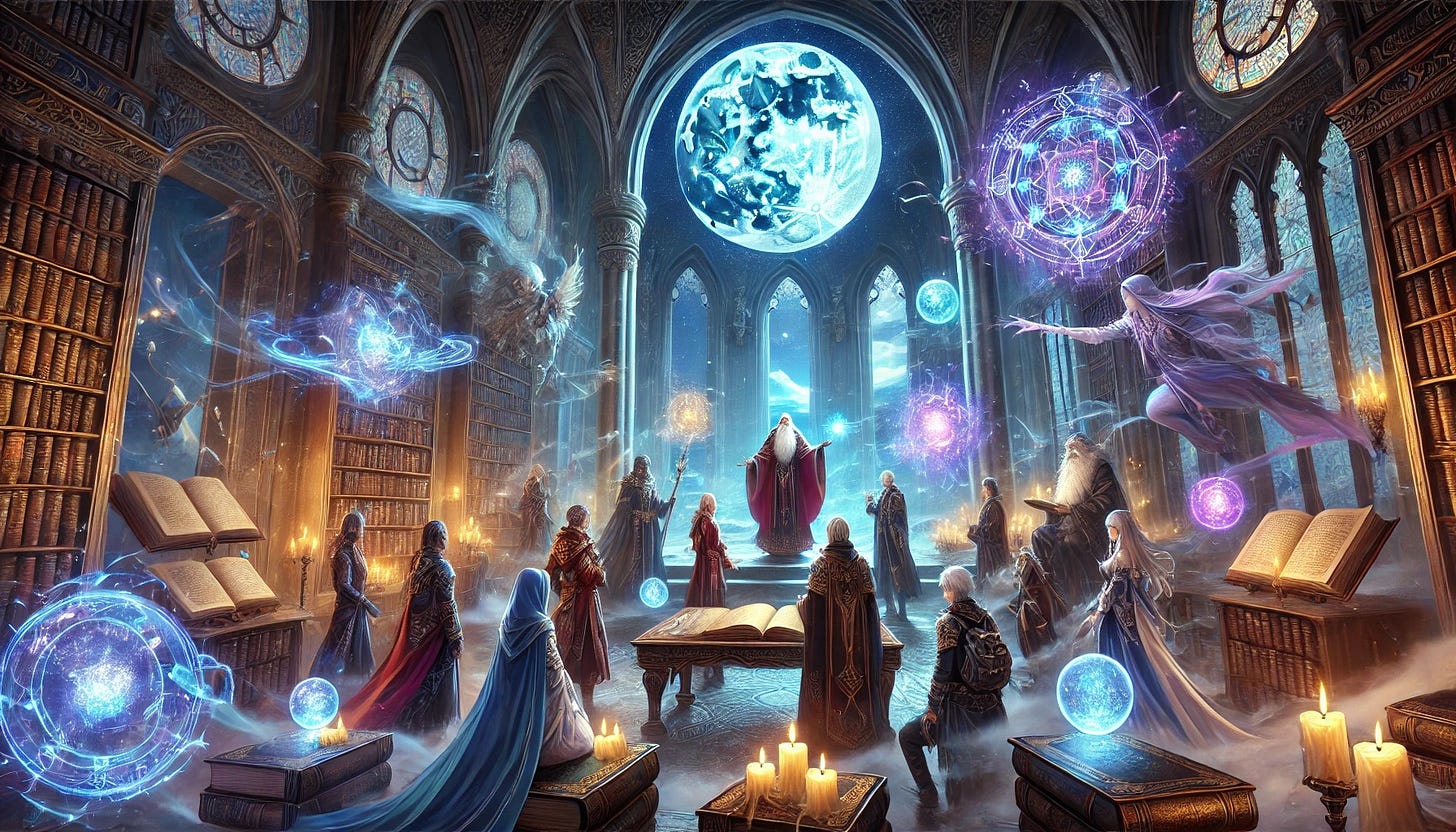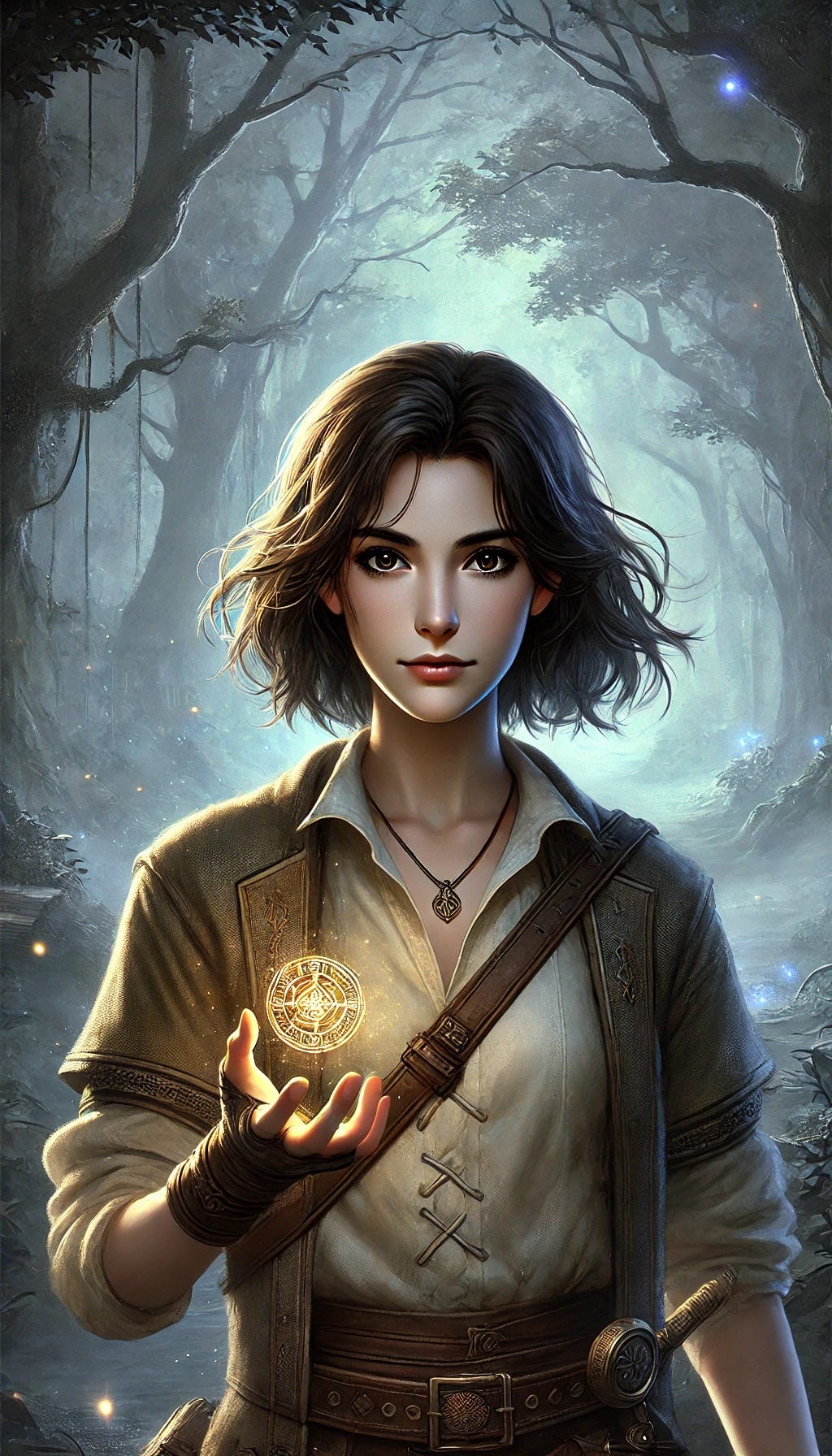AI and Fiction: A Writer’s Tool, Not a Crutch
And a few ways in which I've used the tireless assistant to help guide my novel
Whether you buy the notion that Artificial Intelligence is a good thing, a bad thing, or somewhere in between, watching how both sides howl with glee or vitriol as the announcements about advancements are released is fascinating. On the one hand, I subscribe to several newsletters that gleefully (yes, that’s the word I would use) list the daily developments in how people use AI for business, investing, medicine, weather, whatever. On the other hand, some other characters can’t believe the hype and spend tons of internet ink looking beyond the glitz and behind the wizard to uncover the real truth.
That’s not why I’m writing this post: you can find oodles of voices cheering AI and nearly as many disparaging the tech and what it’s doing to us.
No, I’m more in the middle ground. I can see the wizard behind the curtain, but I also know that AI, if used correctly and in the proper context, can save untold hours for any writer, whether she’s writing fiction or non-fiction.
It’s just another tool that can be used for good or evil!
In my personal experience, I’ve used ChatGPT to research and help imagine characters, learn about genre tropes, compile lists of robust action verbs, play out several scenarios, offer genre-friendly suggestions for directions a story could go when I’m a little stumped, and on and on and on.
Beyond that, I’ve also read about some of the advancements AI has made in helping authors, particularly fiction writers, and I thought it might be fun to share some of them here.
I’m all for using tools that help writers improve the story and our writing. I’m not in favor of using AI to write the damn book for us. What’s the fun in that? But there is fun in using it to explore various ways the story might look and to come up with things that we might not have considered before. Yes, as writers, we want to think we can think of every possible permutation of a storyline that works in the context of the characters and where we want the story to go in an entertaining way.

Over the past year, advancements in AI, particularly in tools like ChatGPT, have significantly enhanced the support available to fiction authors. Notable developments include:
Enhanced Writing Interfaces: OpenAI introduced the "Canvas" feature for ChatGPT, providing an editable space alongside the chat interface. This allows authors to collaboratively draft, edit, and refine their work with AI assistance, streamlining the writing process.
Multimodal Capabilities: The release of GPT-4o ("omni") enabled ChatGPT to process and generate text, audio, and images in real time. This multimodal functionality allows authors to receive feedback on visual elements, such as book covers or illustrations, and even generate audio narrations, enriching the storytelling experience.
Advanced Language Generation: AI models have improved in generating coherent and contextually relevant text, assisting authors in drafting narratives, developing dialogues, and exploring different writing styles. These models can emulate various tones and genres, providing creative inspiration and support.
Integration with Writing Tools: AI-powered writing assistants like Wordtune have introduced features that suggest paraphrases, alternative tones, and even generate content based on context. Such tools help authors enhance their prose, maintain consistency, and overcome writer's block.
AI-Assisted Creative Collaboration: Playwrights and authors have begun integrating AI into their creative processes. For instance, in the development of the play "McNeal," AI models like ChatGPT were used to generate content, demonstrating AI's potential to augment human creativity in fiction writing.
These advancements have made AI an increasingly valuable collaborator for fiction authors, offering tools that enhance creativity, streamline workflows, and open new avenues for storytelling.
I asked ChatGPT for ways that authors can use it to help with their fiction, but still be in control of the story and not use any of AI's actual writing in their story.
Here’s an edited version of the answer:
Advances in AI for Fiction Writers Over the Past Year
Enhanced Plot Development Assistance: AI has become better at brainstorming intricate and original plotlines, creating branching narratives, and suggesting possible resolutions to complex story arcs.
Character Deepening Tools: AI can generate detailed character profiles, including backstories, personality traits, and motivations, helping authors visualize multidimensional characters.
World-Building Generators: New advancements allow AI to generate detailed settings, including maps, cultures, economies, and ecosystems, tailored to a writer's genre or theme.
Dynamic Writing Prompts: AI now provides more nuanced and context-sensitive writing prompts inspired by the author’s existing drafts to help overcome writer’s block or explore alternative plot ideas.
Improved Feedback Mechanisms: AI editing tools can now analyze drafts with greater nuance, providing actionable feedback on pacing, tone, and consistency while highlighting areas for development without writing or rewriting sections.
Five Ways Fiction Authors Can Use ChatGPT or AI While Staying in Control
Plot Brainstorming and Idea Refinement
Use AI to brainstorm plot ideas based on a basic premise or theme you provide. AI can suggest twists, subplots, and conflicts, which you can adapt and integrate into your story.Character Exploration and Conflict Development
Collaborate with AI to explore potential character motivations, relationships, and conflicts. AI can propose scenarios where these traits might come into play, giving you fresh ideas for character dynamics.World-Building Assistance
Provide AI with a framework for your fictional world, and ask for help in fleshing out details like societal rules, magic systems, or futuristic technologies. Use the generated content as a springboard to refine your vision.Outlining Scenes and Structures
Have AI outline potential scene ideas or narrative structures. For example, you could ask how a scene might unfold in three different ways, helping you decide the best direction without relying on the AI’s phrasing.Dialogue Experimentation and Tone Testing
Use AI to test how characters might respond to one another in hypothetical conversations, letting you explore different tones, styles, or approaches to dialogue. Rewrite the actual dialogue yourself, keeping complete creative control.
Using these strategies, authors can harness AI's creativity and analytical power while ensuring the story remains entirely their own.
Here’s one example of how I’ve used ChatGPT to assist as I worked through the latest version of the novel I’m working on. I wanted to game out a final battle scene where Jia, the protagonist, grapples with her new sorcery powers: the depth and breadth of what she’d merely had a glimpse of before her mother died and the limitations. I wanted a scene to show her (and the reader) who she really was. I wanted something that illustrated the significant history, the thousand years that the powerful amulet she wears has been passed down for a thousand years since her family forged it with another family around 1000 AD. I had a few ideas, but they didn’t jump out at me. There wasn’t a lot of sizzle.
So I asked ChatpGPT, which suggested some options, one of which I thought was perfect. Just what I was looking for. As part of the last big showdown, I wanted the battle to come to a screeching halt, essentially stopping time, which would be partly caused by a revelation about her true powers. The suggested scene shows Jia going to a place that was out of the realm of current time and space, instead putting her into a scene where she meets not only her deceased mother but also a roundtable of a half-dozen key figures of her family’s ancestry, who showed her both the upside and the downside of her new powers, giving her more information on a choice that she would be forced to take: on whether to embrace the sorcery she’d inherited or to renounce it in favor of her true love: creating music on her piano. I mean, what would you do?
Bottom line: using ChatGPT is like hiring a tireless research assistant who knows the urban fantasy genre through and through, an assistant who helps me stay within the boundaries and tropes that readers would expect but still pushes them to create something different within it.
Once the scene was suggested, I wrote it, then had AI review it and suggest improving it, much like an experienced manuscript editor might do. That’s a solid way to use AI in creating fiction. A collaboration in which you, the author, are still in control.






